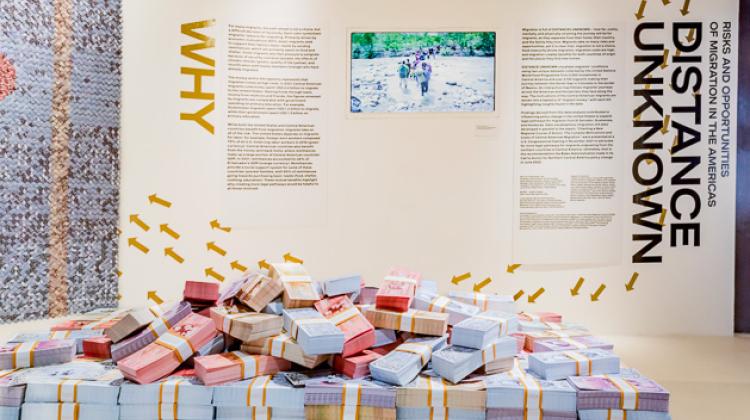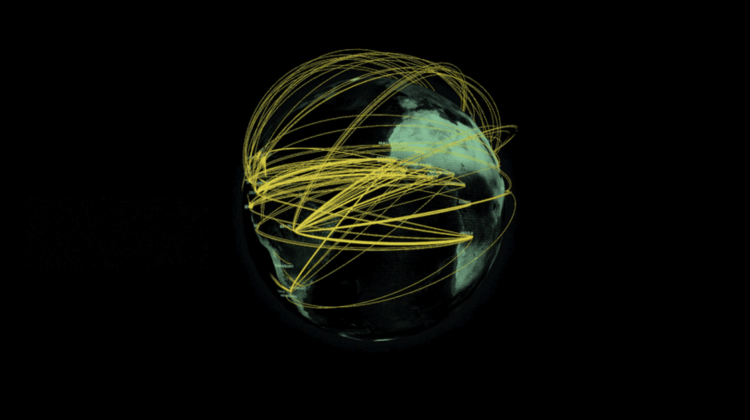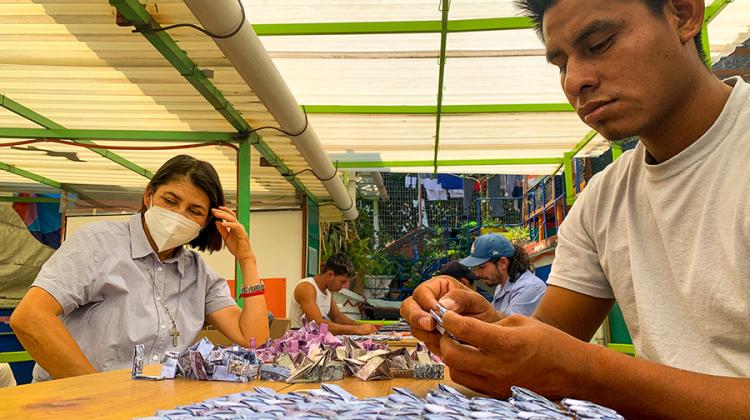Visualizing Migrant Stories in the Americas

In the current era of political and ideological divisions, many in the Global North view the topic of immigration through the lens of their particular political beliefs based on the truths they choose to believe about immigration and immigrants. But how much of the information that informs political and ideological stances is actually rooted in data and how much of this information is artificially generated through hearsay and online echoes? An award winning project, Distance Unknown: Risks and Opportunities of Migration in the Americas, seeks to raise awareness on the complicated realities of migratory peoples.
Distance Unknown, a digital and physical exhibition, leveraged data collected from close to 5,000 households in El Salvador, Guatemala, and Honduras. This data set includes experiences collected at multiple border crossings from more than 2,100 migrants as they made their northbound journey to Mexico and the United States.
On January 30th, 2024 Distance Unknown was named a recipient of the 2024 Anthem Awards under the ‘Humanitarian Action & Services’ category for ‘Best use of data.’ Established by The Webby Awards in 2021, the Anthem Awards are a mark of distinction for social impact excellence, celebrating purpose and mission-driven work worldwide. This year’s Anthem Award Winners were selected from a pool of over 2,000 submissions from 44 countries by the International Academy of Digital Arts and Sciences (IADAS).
- Image

Credit: Civic Data Design Lab
- Image

Credit: Alberto Meouchi
- Image

Credit: Alberto Meouchi
Distance Unknown was co-produced with migrants, the United Nations World Food Programme (WFP), and the MIT Civic Data Design Lab (CDDL). “In addition to documenting and raising awareness about the challenges and risks associated with migration, we were stunned to learn the financial burden borne by migrants,” says Sarah Williams, director of CDDL and MIT's Norman B. Leventhal Center for Advanced Urbanism. “Migrants from Guatemala, El Salvador and Honduras collectively spent USD 2.2 billion to travel to the United States in 2021, which is comparable to what their home countries allocate to primary education.”
“This data tells an important story: food insecurity and migration go hand in hand. People would rather stay home than risk it all. But when they do not have food, they do what any of us would do to feed their families” said WFP’s Executive Director, Cindy McCain. “WFP is working together with communities to build livelihoods, produce enough food to feed their families and offer hope.”
Learn more about Distance Unknown
Learn more about Anthem Awards and additional 2024 winners


